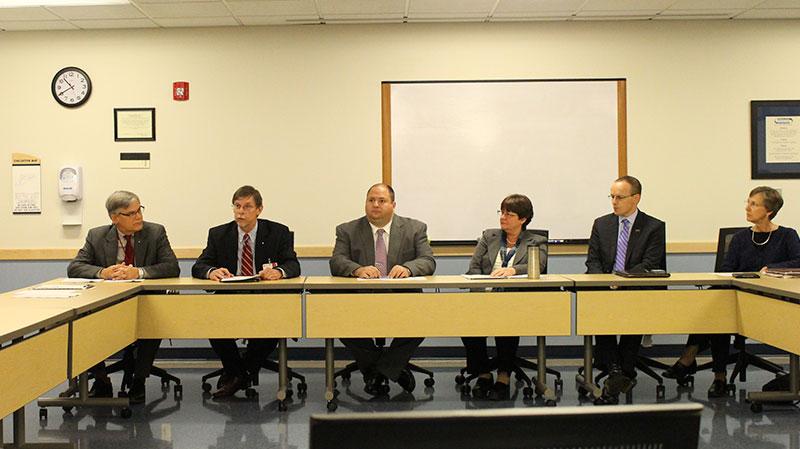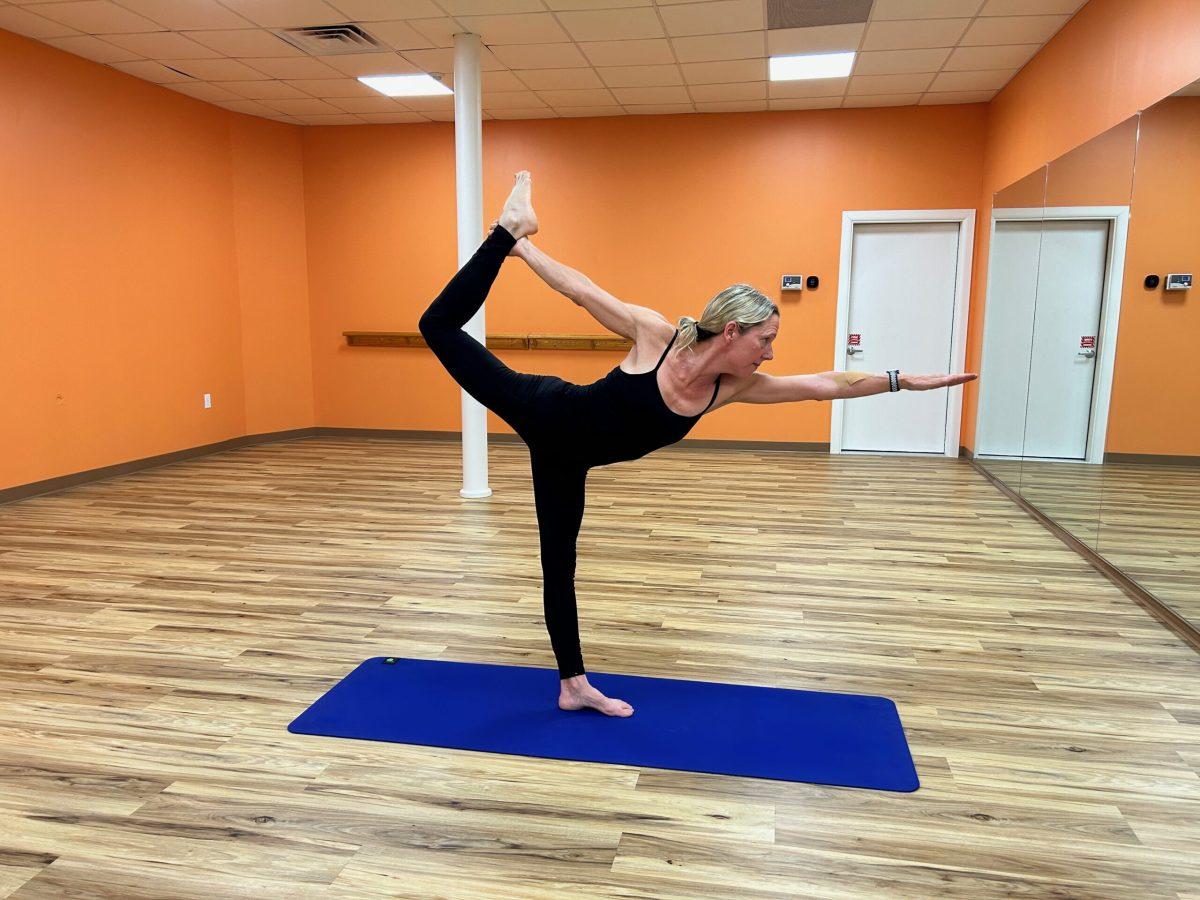Amid recent anxiety surrounding Ebola, Tompkins County medical leaders held a media panel Tuesday to dispel concerns about a possible Ebola outbreak in the area and across the nation. This decision comes after four confirmed cases in the U.S.
New York State confirmed its first case when a nurse, who recently worked in West Africa, was quarantined in Newark after arriving on Friday.
Representatives of the Health Department, Cayuga Medical Center and Gannett Health Services at Cornell gathered at department headquarters to alleviate fears and discuss preventative measures being taken at the local level.
“The message is that the risk of someone who is infected with Ebola coming to Tompkins County is low,” Dr. David Evelyn, Vice President of Medical Affairs at Cayuga Medical Center said. He added that patients are “not very infectious in the first stage of their illness.”
Cayuga Medical Center, which has been monitoring the outbreak since the summer, recently administered a drill to prepare staff in the event of an outbreak. It satisfied a request by New York State Department of Health that hospitals be briefed on proper protocols when dealing with an infected patient.
“The drill was a scenario of a person coming into the hospital and identifying themselves as having traveled to an impacted area, and then carrying it through to the point of identification of the patient as a potential exposure patient,” president and CEO of Cayuga Medical Center John Rudd said, adding that they ensured “that appropriate isolation of the patient occurred with protective equipment by the staff.”
Last week, Cornell University restricted student and faculty travel to West Africa, according to a statement by Public Health Director of Tompkins County Health Department Frank Kruppa. Ithaca College followed on Wednesday, by advising against travel to and near the affected areas.
While Ithaca’s medical community aims to put residents’ fears of an outbreak at ease, local grassroots organizations direct their services abroad.
Symptoms are similar for patients in highly affected countries and elsewhere, zoonotic virus expert Dr. Jarra F. Jagne of Cornell’s Animal Health Diagnostic Center said. The risk of fatality is higher in Liberia, Guinea and Sierra Leone due to a lack of supplies and medical resources.
“There are not enough hospital beds to hook them up to fluids,”Jagne said of why many West Africans are dying from this virus. She added, “If people understood what kind of infrastructure is in these countries, they would understand why people are dying from this disease.”
A report by the World Health Organization and Center for Disease Control and Prevention cites 4,868 fatalities between the affected countries, as well as 21 cases and 8 deaths between Nigeria and Senegal. Four confirmed cases in the US have resulted in one death, that of Thomas Eric Duncan in Texas.
Contraction risk may be greater due to cultural differences in caring for the ill, Jagne said, adding that many West African communities never “abandon the sick person.” If not equipped with the proper supplies, caretakers are directly exposed to the infected person’s bodily fluids.
Over two million boxes of gloves are needed to combat the disease, but so far only 18,000 have reached the devastated areas, Jagne said.
Ithaca’s African Women’s Initiative is working to put together prevention kits for those traveling to areas of concern. The 20-25 piece kits include chemical Splash Goggles, Nitrile Exam Gloves, protective boots and N95 Medical Respirator Medical Masks.
“The goal of the kit ‘is to encourage scholars, travelers and visitors visiting an affected community to travel with this specially developed kit or to buy one or more and donate them to friends, family and caregivers resident in West Africa,’” Peyi Soyinka-Airewele Ph.D, said, adding that “it is important to ensure travelers to affected societies do not constitute an additional burden on the overburdened health.”
While there is no immediate threat locally, AWI sees the need for a community effort to provide people with means of self-protection against the virus.






